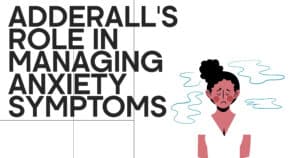Welcome to our deep dive into one of the most fundamental aspects of well-being that’s often overlooked: sleep. You might think of sleep as just a nightly ritual, but it’s so much more than that. It’s a vital component of your overall health and crucial to maintaining mental wellness.
Essential Takeaways
- Prioritize Sleep for Mental Health: Quality sleep is crucial for maintaining emotional balance, cognitive function, and overall mental health.
- Implement Healthy Sleep Habits: Establish a consistent sleep schedule, create a relaxing pre-sleep routine, and optimize your sleep environment to improve sleep quality.
- Seek Professional Help for Sleep Disorders: If you suspect a sleep disorder, consult a healthcare professional for diagnosis and treatment to support better mental health and well-being.
In this post, we’ll explore how sleep impacts your mental health and share practical tips for improving your sleep hygiene to help you achieve better rest and, ultimately, better mental health.
The Connection Between Sleep and Mental Health
Ever found yourself feeling more irritable or anxious after a sleepless night? You’re not alone. The relationship between sleep and mental health is well-established. Quality sleep helps regulate mood, stress levels, and cognitive function. Conversely, poor sleep quality can exacerbate mental health disorders and contribute to a range of problems from anxiety and depression to more severe conditions like psychiatric disorders.
Why Sleep Matters
Sleep is more than just a time to rest—it’s a period during which your body and mind rejuvenate. It affects everything from your mood and stress levels to your ability to focus and remember things. When you sleep, your brain processes information, forms memories, and clears out toxins that build up during waking hours. This restorative process is crucial for maintaining emotional balance and cognitive function.
Chronic insomnia and circadian rhythm disruption can serve as a risk factor for developing mood disorders or even psychiatric conditions. On the other hand, getting adequate sleep can lead to a positive mood and an overall improved quality of life.
Understanding the Science of Sleep

The Sleep Cycle
To understand why sleep is so crucial, it helps to know a bit about how sleep works. Your sleep is divided into several stages, each with a unique role:
- REM Sleep: This is when most dreaming occurs. It’s crucial for cognitive functions like memory and learning.
- Deep Sleep: This stage is essential for physical recovery and immune function. It helps your body heal and grow.
- Light Sleep: This is the transitional stage between wakefulness and deeper sleep. It prepares the body for the more restorative phases of sleep.
Each stage serves a purpose, and disruptions in these cycles can impact your mental health. For example, insufficient REM sleep can impair memory and emotional regulation, while lack of deep sleep can affect your physical health and mood.
The Role of Sleep in Mental Health
Sleep influences mental health in several ways:
- Mood Regulation: Quality sleep helps regulate your emotions, making it easier to handle stress and stay positive. Poor quality sleep can lead to irritability and mood swings.
- Cognitive Function: Sleep supports cognitive processes such as problem-solving, decision-making, and memory. Lack of sleep can impair these functions, leading to difficulties in concentration and memory recall.
- Stress and Anxiety: Chronic sleep issues are linked to increased levels of stress and anxiety. Sleep helps manage stress by restoring the body’s stress-response systems.
Research consistently shows that inadequate sleep can contribute to various mental health outcomes, including depression and anxiety disorders. Conversely, improving sleep can enhance mood and cognitive function.
The Impact of Poor Sleep on Mental Health

Short-Term Effects of Sleep Deprivation
When you don’t get enough sleep, the effects can be felt almost immediately:
- Irritability: Lack of sleep can make you more prone to irritability and mood swings.
- Difficulty Concentrating: Sleep deprivation affects your ability to focus and think clearly.
- Increased Stress: Without adequate rest, your body’s stress response is heightened, increasing stress levels.
These short-term effects can make daily life challenging and impact your ability to perform tasks effectively. In the long run, chronic sleep deprivation can lead to more serious mental health difficulties.
Long-Term Mental Health Consequences
Chronic sleep problems can have severe consequences for mental health:
- Depression: Persistent sleep issues are strongly linked to depression. Insomnia symptoms or disrupted sleep can contribute to the onset and worsening of depressive symptoms.
- Anxiety Disorders: Bad sleep can exacerbate anxiety, making it harder to manage symptoms and cope with daily stressors.
- Bipolar Disorder: Sleep disturbances are common in individuals with bipolar disorder, often triggering manic or depressive episodes.
Long-term sleep deprivation can lead to a cycle where mental health issues further disrupt sleep, creating a challenging situation that’s difficult to break without intervention.
Tips for Improving Sleep Hygiene
Improving your sleep hygiene is key to better sleep and, by extension, better mental health. Here are some practical tips to help you get started:
Establishing a Consistent Sleep Schedule
One simplest yet most effective way to improve your sleep is to stick to a consistent sleep schedule. Try to go to bed and wake up at the same time every day, even on weekends. This helps regulate your body’s internal clock and improves the quality of sleep.
Tip: If you need to adjust your sleep schedule, gradually shift your bedtime and wake-up time by 15-30 minutes every few days until you reach your desired schedule.
Creating a Sleep-Inducing Environment
Your sleep environment plays a crucial role in how well you rest. To create a sleep-friendly environment:
- Comfortable Mattress and Pillows: Invest in a mattress and pillows that provide adequate support and comfort.
- Dark Room: Use blackout curtains or an eye mask to block out light, which can interfere with your sleep.
- Cool Temperature: Keep your bedroom cool, ideally between 60-67°F (15-19°C), to promote restful sleep.
Tip: Avoid using electronic devices like smartphones and tablets before bed, as the blue light emitted can disrupt your circadian rhythms.
Developing a Pre-Sleep Routine
Establishing a relaxing pre-sleep routine can signal to your body that it’s time to wind down. Consider incorporating the following activities into your nightly routine:
- Reading: Choose a book that helps you relax rather than something too stimulating.
- Meditation or Deep Breathing: Practice relaxation techniques to calm your mind and prepare for sleep.
- Warm Bath or Shower: A warm bath or shower before bed can help lower your body temperature and promote relaxation.

Tip: Avoid caffeine and heavy meals close to bedtime, as these can disrupt your sleep.
Monitoring Diet and Exercise
What you eat and how much you exercise can impact your sleep quality:
- Avoid Caffeine: Caffeine is a stimulant that can interfere with your ability to fall asleep. Try to avoid consuming caffeine-containing foods and drinks in the afternoon and evening.
- Light Evening Meals: Avoid heavy or spicy meals close to bedtime, as these can cause discomfort and disrupt sleep.
- Regular Exercise: Engage in regular physical activity, but avoid vigorous exercise close to bedtime. Aim for at least 30 minutes of moderate exercise most days of the week.
Tip: Try to finish eating at least 2-3 hours before going to bed to give your body time to digest.
Managing Stress and Anxiety
Stress and anxiety can significantly impact your ability to sleep well. To manage stress:
- Mindfulness Practices: Incorporate mindfulness techniques such as meditation or yoga into your daily routine.
- Journaling: Write down your thoughts and worries before bed to clear your mind and reduce anxiety.
- Professional Help: If stress or anxiety is overwhelming, consider seeking support from a mental health professional.
Tip: Establishing a regular mindfulness practice can help you manage stress more effectively and improve sleep quality over time.
Addressing Common Sleep Disorders
Sleep disorders can significantly affect your mental health. If you suspect you have a sleep disorder, consider seeking professional help. Here’s an overview of some common sleep disorders:
Insomnia
Insomnia is characterized by difficulty falling asleep, staying asleep, or waking up too early. It can be caused by stress, anxiety, or other underlying conditions.
Tips for Managing Insomnia:
- Stick to a Sleep Schedule: Maintain a consistent sleep routine.
- Create a Relaxing Bedtime Routine: Engage in calming activities before bed.
- Avoid Napping During the Day: Limit naps to 20-30 minutes earlier in the day.
If insomnia persists despite these measures, consult a healthcare professional for further evaluation and treatment options. Behavioral therapy and cognitive behavior therapy are often recommended as effective treatments.
Sleep Apnea
Sleep apnea is a serious condition where breathing repeatedly stops and starts during sleep. It can lead to disturbed sleep and an increased risk of mental health issues, including post-traumatic stress disorder and major depression.
Tips for Managing Sleep Apnea:
- Seek Medical Diagnosis: If you suspect sleep apnea, consult a healthcare professional for a sleep study.
- Use a CPAP Machine: A continuous positive airway pressure (CPAP) machine can help keep your airways open during sleep.
- Maintain a Healthy Weight: Obesity can worsen sleep apnea, so managing your weight can improve symptoms.
Restless Legs Syndrome
Restless Legs Syndrome (RLS) involves uncomfortable sensations in the legs and an urge to move them, often disrupting sleep.
Tips for Managing RLS:
- Establish a Bedtime Routine: Engage in activities that promote relaxation before bed.
- Avoid Stimulants: Limit caffeine and nicotine intake, especially in the evening.
- Consider Medication: Consult a healthcare professional for possible treatment options, including medication.
When to Seek Professional Help
If you’ve tried improving your sleep hygiene but still struggle with sleep issues, it may be time to seek professional help. Persistent sleep problems can significantly impact your mental health, and addressing them with the help of a healthcare professional is crucial.
Consider seeing a sleep specialist if:
- You have trouble falling or staying asleep despite following good sleep practices.
- You experience excessive daytime sleepiness or fatigue.
- Your sleep problems are affecting your daily life or mental health.
A sleep specialist can diagnose and treat sleep disorders, helping you achieve better sleep and improve your overall mental health.
Final Thoughts
Sleep is essential to your overall well-being and mental health. By prioritizing sleep and making changes to your sleep hygiene, you can improve your sleep quality and support your mental health. Remember that sleep is a critical component of self-care, and taking steps to ensure you get enough rest is an investment in your health and happiness.
If you continue to experience sleep difficulties, don’t hesitate to seek professional help. Addressing sleep issues can significantly impact your mental health and quality of life. Sweet dreams!







